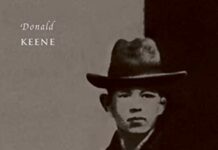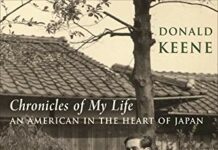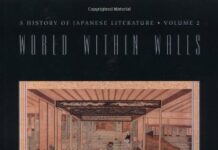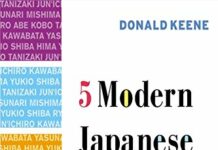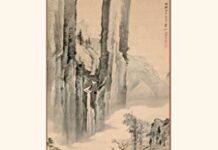
Ebook Info
- Published:
- Number of pages:
- Format: PDF
- File Size: 1.31 MB
- Authors: Donald Keene
Description
The attack on Pearl Harbor, which precipitated the Greater East Asia War and its initial triumphs, aroused pride and a host of other emotions among the Japanese people. Yet the single year in which Japanese forces occupied territory from Alaska to Indonesia was followed by three years of terrible defeat. Nevertheless, until the shattering end of the war, many Japanese continued to believe in the invincibility of their country. But in the diaries of well-known writers including Nagai Kafu, Takami Jun, Yamada Futaru, and Hirabayashi Taikoand the scholar Watanabe Kazuo, varying doubts were vividly, though privately, expressed.Donald Keene, renowned scholar of Japan, selects from these diaries, some written by authors he knew well. Their revelations were sometimes poignant, sometimes shocking to Keene. Ito Sei’s fervent patriotism and even claims of racial superiority stand in stark contrast to the soft-spoken, kindly man Keene knew. Weaving archival materials with personal recollections and the intimate accounts themselves, Keene reproduces the passions aroused during the war and the sharply contrasting reactions in the year following Japan’s surrender. Whether detailed or fragmentary, these entries communicate the reality of false victory and all-too-real defeat.
User’s Reviews
Reviews from Amazon users which were colected at the time this book was published on the website:
⭐As Donald Keene notes, the records from the diaries written during the epic events of WWII in Japan are probably more truthful than records written after 1945. The diarists have recorded their feelings at the time of the events, not as sanitised or re-rendered for a post-war world. And some of them are highly disturbing (and perhaps embarrassing for the authors) – all the more disturbing as they are from the diaries of educated and highly cultured writers.The bloodlust of Yamada Futaro is interesting – but I guess even far-right nutters can be good writers (did he still think Hitler was a fallen hero when the truth came out?). His desire for vengeance against the US and Britain continued on into the new world, looking forward to the next war and a reversal of fortunes, and was probably stoked by his disappointment that the occupying forces did not impose the reign of terror he expected. At worst, there was some crass behaviour he objected to – some of it unsurprising. I mean, what was the US thinking, flying large formations of B-29s over Tokyo in August 1946, presumably in some perverse celebration of the first anniversary of the war’s end. Can’t imagine it brought warm fuzzy feelings to the Japanese citizens looking up from the ruins of Tokyo.Other writers were also surprised by the conciliatory approach of the occupying forces – the fact that long desired freedoms were implemented by the foreign powers and not by their own government. These authors had seen the Japanese army’s atrocities inflicted on citizens of China and thought that was the standard approach taken by a conquering army.An interesting book, tracking the exultation after the bombing of Pearl Harbour and that first year of victories, followed by confusion, disbelief and despair as the tide turned and the Japanese forces were steadily driven back to their land of the gods. All followed by more confusion, disbelief and joy over the surrender and steady emergence of a new Japan.
⭐I guess there must be other books based on diaries and similar sources, but I was sure delighted to read this one. Not just one diary, as we are mostly used to, but a short and edited selection of diaries: all of them by professional writers, which deliberately puts the focus on a particular sample of society, cleverly intertwined with the explanations of the author.I think Mr. Keene does a very good job. To see the days of WWII and after through the eyes of Japanese writers is a unique experience which I would have never been able to enjoy were it not for this work, no matter how modest in its endeavour.From my armchair, I felt the opinions of the author were rather balanced, notwithstanding his obvious simpathy for Japan, probably counterbalanced by his being an American.Last but not least, to confront the thoughts, experiences and feelings of other human beings suffering in time of war is always a humbling lesson, not to be underrated.I do recommend it.
⭐This is an interesting insight into Japanese thought during World War II. One can see the transition from loyalty to the Emperorto growing suspicion of the militarists and the need to hide writings from the censors. Only incidentally is the scarcity of foodand other shortages referred to. Post-war there is an almost amusing comparison of censorship by the Japanese authorities and the occupation forces.
⭐Thoughts of literary Japanese diarists during and in the close aftermath of World War II are selected and commented on by a master, Donald Keene.Interesting information, such as the emotional impact of the USSR’s declaration of war in the war’s final days and the varied reactions to the presence of the U.S. occupation forces, is contained throughout this short volume.For those who might be unaware of Professor Keene, I highly recommend his memoirs, “Chronicles of My Life: An American in the Heart of Japan.”As an aside, Chang Jae Lee deserves applause for the design of the book and its jacket.
⭐I had hoped for more insight from people in Japan during the war, more day to day observations, viewpoints etc. It seemed more like the “diarists” had less input than the author. Some entries were new to me, but overall, a disappointing read.
⭐As expected, Donald Keene’s translations are outstanding and a pleasure to read for the sensitivity and insights that are literature and cultural history.Highly recommended.
⭐This little book is fascinating and, in its way, disturbing. The degree to which Japan’s literati not only accepted, but eagerly embraced, the ideals of the country’s wartime leaders is shocking. From the perspective of the modern day, it is almost incomprehensible that these educated figures could show such full-throated enthusiasm for war, domination, and (after Japan’s defeat) vengeance. To read the diarists is to realize the enormous gap that separates contemporary Japan from the WWII years. Keene tells the story well, though a bit too dispassionately for my taste; I wish he had taken a step back and at least raised some basic questions about the role of intellectuals in a fanatical nationalist regime.
Keywords
Free Download So Lovely a Country Will Never Perish: Wartime Diaries of Japanese Writers (Asia Perspectives: History, Society, and Culture) in PDF format
So Lovely a Country Will Never Perish: Wartime Diaries of Japanese Writers (Asia Perspectives: History, Society, and Culture) PDF Free Download
Download So Lovely a Country Will Never Perish: Wartime Diaries of Japanese Writers (Asia Perspectives: History, Society, and Culture) PDF Free
So Lovely a Country Will Never Perish: Wartime Diaries of Japanese Writers (Asia Perspectives: History, Society, and Culture) PDF Free Download
Download So Lovely a Country Will Never Perish: Wartime Diaries of Japanese Writers (Asia Perspectives: History, Society, and Culture) PDF
Free Download Ebook So Lovely a Country Will Never Perish: Wartime Diaries of Japanese Writers (Asia Perspectives: History, Society, and Culture)
